Is Black Friday a Spell?
How a description of herding became a prescription to stampede
The term Black Friday originally referred to a financial crash in 1869, in which a scheme run by some politically-connected robber-barons caused the US gold markets to crash. In the 1950s, though, some academics started using the term to describe the day after Thanksgiving, when many people would feign illness to skip work and get a long weekend. Certain police departments in US cities also started using it in the 1960s to refer to the beginning of the congested weekend at the start of the Christmas shopping period.
In all of these cases, the phrase was applied from the perspective of an outside observer, a bit like an ecologist might describe the annual migration of gazelle. Picture David Attenborough watching shoppers in US cities and saying, “And here we have the annual Black Friday migration of the consumer class.”
In subsequent decades, though, this term ‘Black Friday’ was slowly hijacked by a class of corporate marketers who gradually got the gazelle to include it into their own internal self-identity. Rather than using this term as an after-the-fact description of observed behaviour, it became a before-the-fact prescription, a call to action that you were supposed to go shopping. The term ceased to be a description of herding behaviour and morphed into an instruction to stampede the shops.
Naming into existence
Many philosophers and mystics have long sensed that the act of naming can create reality. In academic circles they discuss this in speech act theory, and through concepts like performativity, but my favourite book about this is actually Ursula Le Guin’s fantasy masterpiece, A Wizard of Earthsea - based on Taoism - where the wizards specialise in knowing the names of things to manipulate the fabric of reality.
In fact, some scholars even argue that the magical term ‘abracadabra’ comes from an Aramaic phrase that means ‘I create like the word’, again pointing to this idea that language can create reality and bring things into existence.
Modern masters of this ‘speaking into existence’, however, are corporate marketing teams. By repeatedly naming Black Friday, and announcing its arrival, it was turned from a passive descriptive phrase denoting some loose behaviour into an actively charged cultural object that could pull people in like a magnet.
This process began in the US, but in the era of digital globalization, this exploded mimetically through the marketing departments of all corporations globally. Now this dark cultural object is locked in place in every country and probably won’t be dislodged until we see the fall of capitalism or the heat death of the universe.
Black Friday is now a top-down order to behave in a certain way rather than a description of some real bottom-up cultural phenomenon. In this sense, it shares common ground with things like Christmas, which have also been co-opted as a symbol of, and instruction to, engage in mass consumerism.
Christmas nevertheless does hold on to some shreds of an actual religious holiday that once did exist. If we imagine a spectrum between the purely sacred on the one hand, and the purely commercial on the other, it’s obvious that Christmas has been pulled further and further away from the sacred end of the spectrum over the years.
This reflects a broader process - many human celebrations, from Valentines Day to Mothers Day, have some anchoring in some old sacred practice, but have been slowly degraded into artificial engineered ‘Hallmark Holidays’. This is a term derived from the American company Hallmark, which makes a killing off selling cards to celebrate these supposedly organic festivals.
Something really becomes a Hallmark Holiday when its sacred meaning cannot be realized without also simultaneously buying something. Black Friday, though, is the ultimate culmination of this. It’s a festival with no meaning beyond buying. It’s like Christmas stripped of any illusion of cultural depth, a pure celebration of commercialism presented as a sacred act in itself.
Interpellation
When I’m encountering all the Black Friday ads, I’m always reminded of Louis Althusser’s concept of interpellation. It refers to a method of programming ideas into people’s minds by addressing them as if they already agree with what you’re saying. To understand this, let’s look at one of the purest examples of this phenomenon, which is Black Friday’s sister festival, Cyber Monday.
Cyber Monday was written into existence by a 2005 press release from the National Retail Federation (the biggest retail trade association in the US), which read:
Cyber Monday quickly becoming one of the biggest online shopping days of the year.
All the subsequent commercial slogans like “Cyber Monday is here” and “Are you ready for Cyber Monday?” speak at you (or, in the language of Althusser, ‘hail you’) as if you’re already a person who agrees that this thing is a reality.
These acts of hailing begin to construct you. Picture an old-school grandparent saying to their grandchild, “When are you going to get married?” It seems like a question, but embedded in it is the assumption that the person will get married. The act of asking it, then, is simultaneously the act of telling the grandchild how to behave, and if the grandchild answers the question, they’re implicitly accepting this.
Similarly, when companies say, “Are you ready for Cyber Monday?”, they’re not asking you whether you think it’s real or not. They’re telling you that it’s real and then asking you what you’re going to do about it. This generates a sense in your mind that a whole mass of people somewhere - presumably - already know about this thing that you’re only catching on to now.
Of course, before 2005, nobody had ever seen anyone else ever celebrate Cyber Monday, because in reality it has no organic existence. Like the current version of Black Friday, it was genetically reverse-engineered by companies that spoke about it as if it really were a reality, and thereby conjured it into existence.
Once you become aware of this phenomenon, you’ll see it everywhere. For example, during the rise of digital payments companies in London, they kept on putting up signs saying, “Contactless is here,” addressing you as a person who was expecting this thing to arrive, as if a delivery man turned up at your door saying, “I have brought you this thing that you asked for. It has arrived. It is here.”
For example, here’s an internal pitch deck from the card payments company Amex. In this playbook, they’re trying to explain to their clients how to convince customers to switch to contactless payments. They instruct their clients to loudly and clearly say contactless is here, noting that this kind of language will present the company as being a hero who has arrived to meet the needs of these customers, needs they previously didn’t actually realize that they had.
This is a classic example of interpellation - speaking at people as if they already agree with you. It Trojan-horses the idea into the person’s mind that there’s something obvious that’s being said by the corporate marketer, and that everybody else around them already thinks this thing’s a reality.
Perhaps the saddest new example of this interpellation is Black Friday Week. It’s not like there was some global democratic convention during which we all collectively decided that this week existed. No, the decision was made through tacit agreement between all the corporates, who realised that it was in their collective interest to copy each other and speak about this thing as if it existed. As it is written in the Bible, In the beginning was the word, and the word was Amazon, and Amazon said ‘let there be Black Friday Week, and Amazon saw it and was pleased.
Black Friday Week is not some organic human celebration like a harvest festival. It’s a top-down corporate order to behave in a certain way.
But hey, maybe we should also start to co-opt this process of interpellation to create new days that we want to see in the world. So here’s my wish for this Black Friday. Give it a new name and then speak to people as if it’s a reality. Maybe you can start the process by dropping it into the comments.



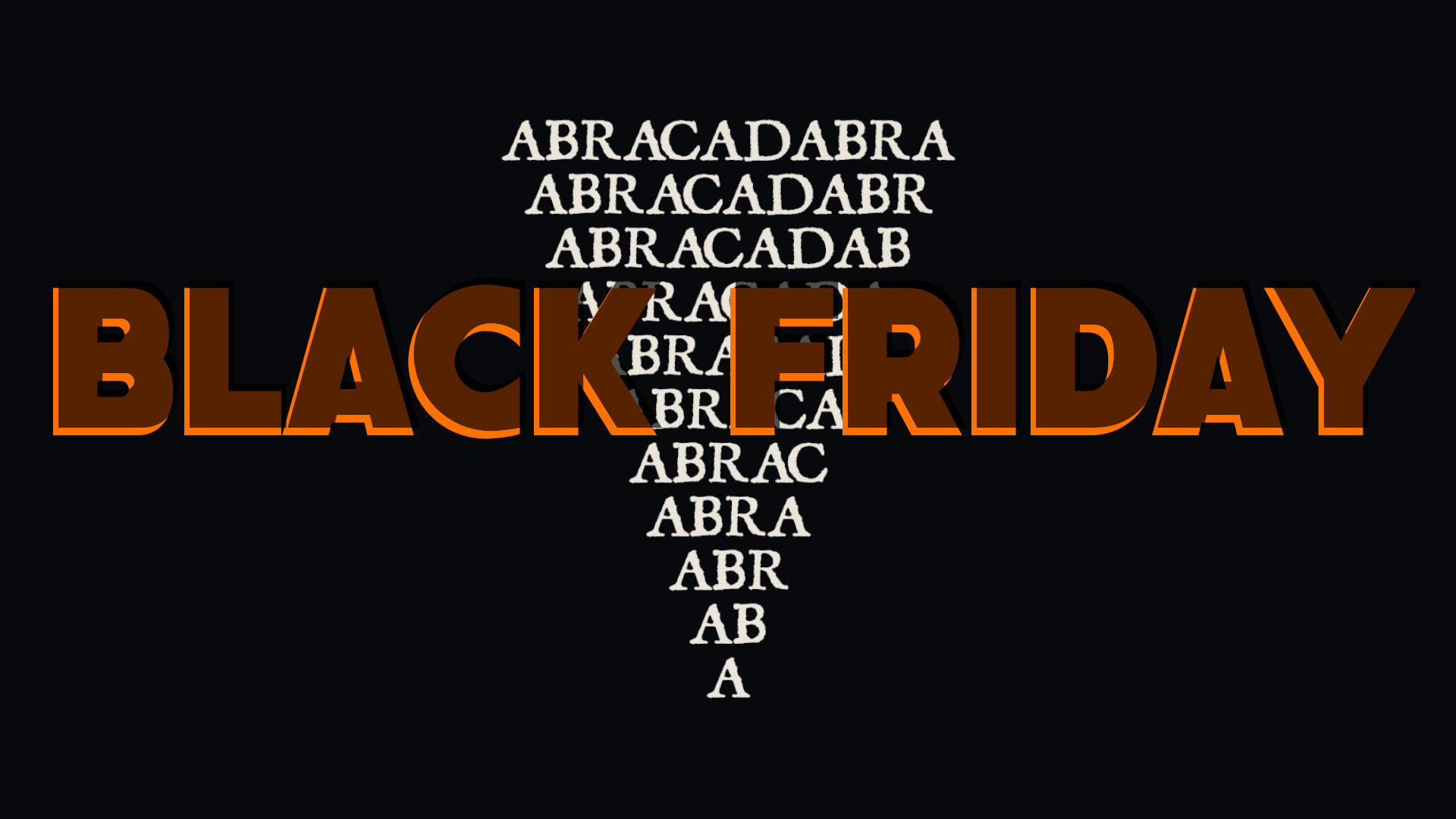
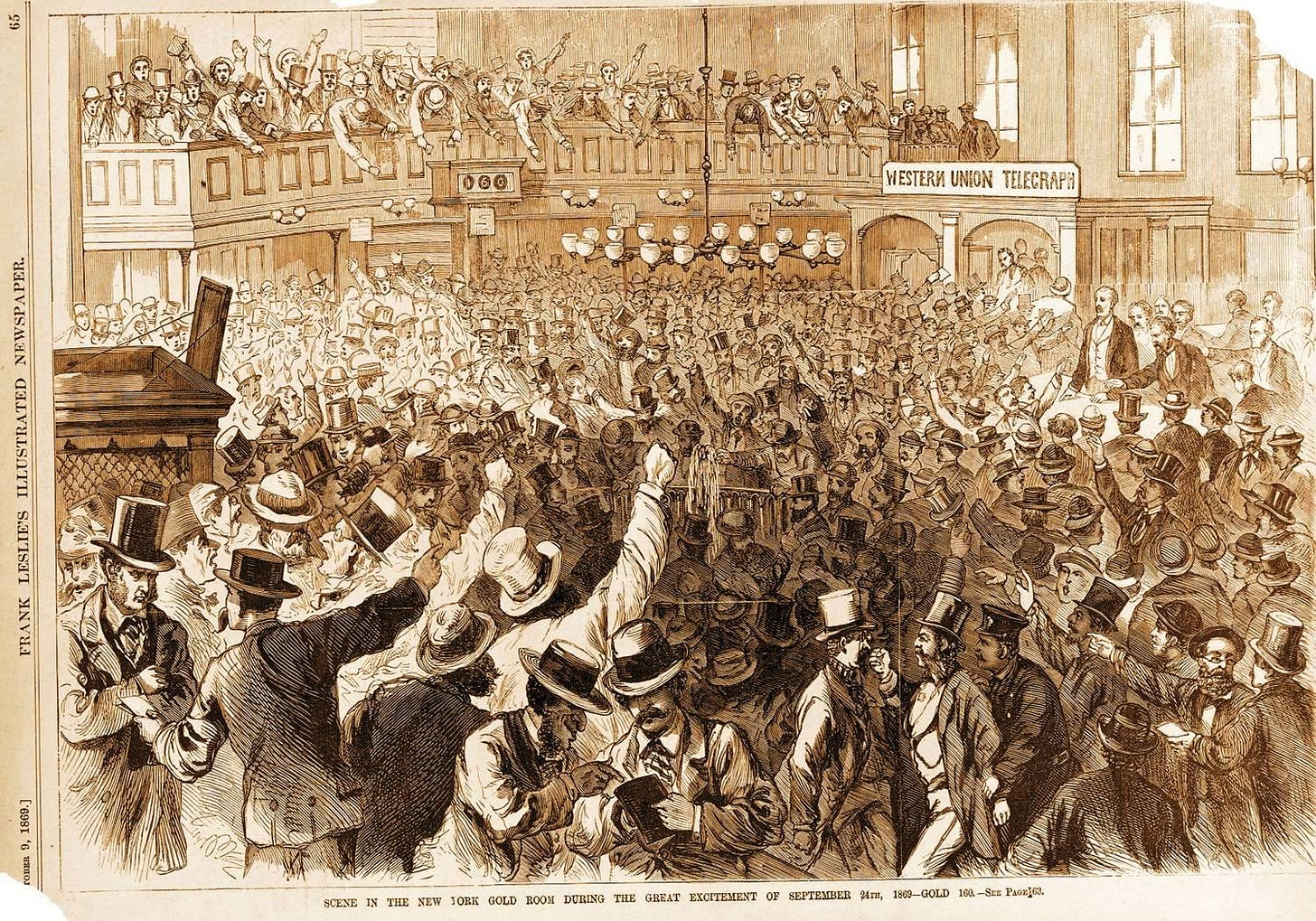

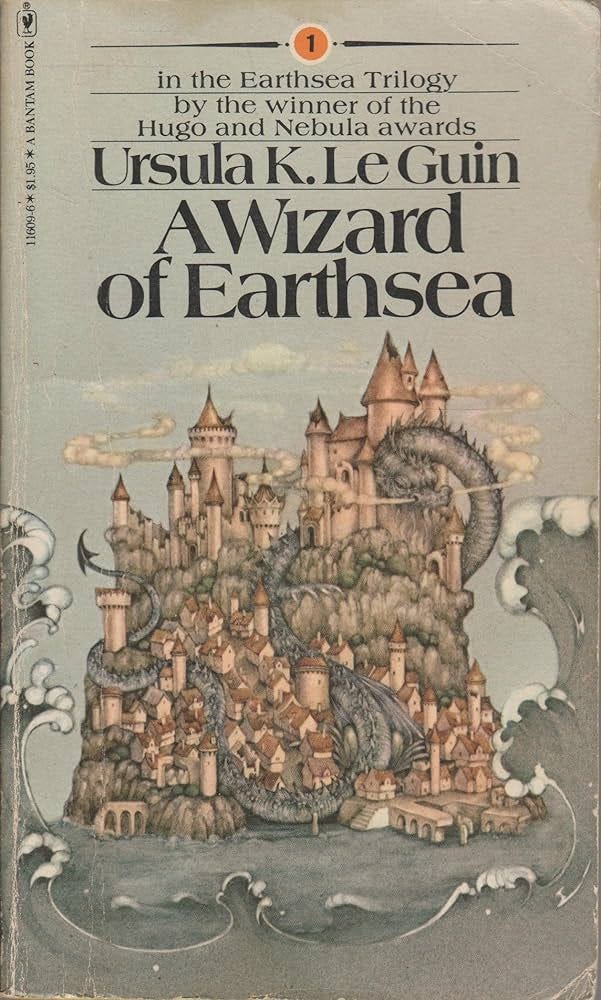
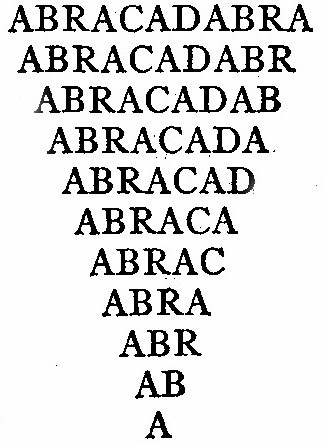
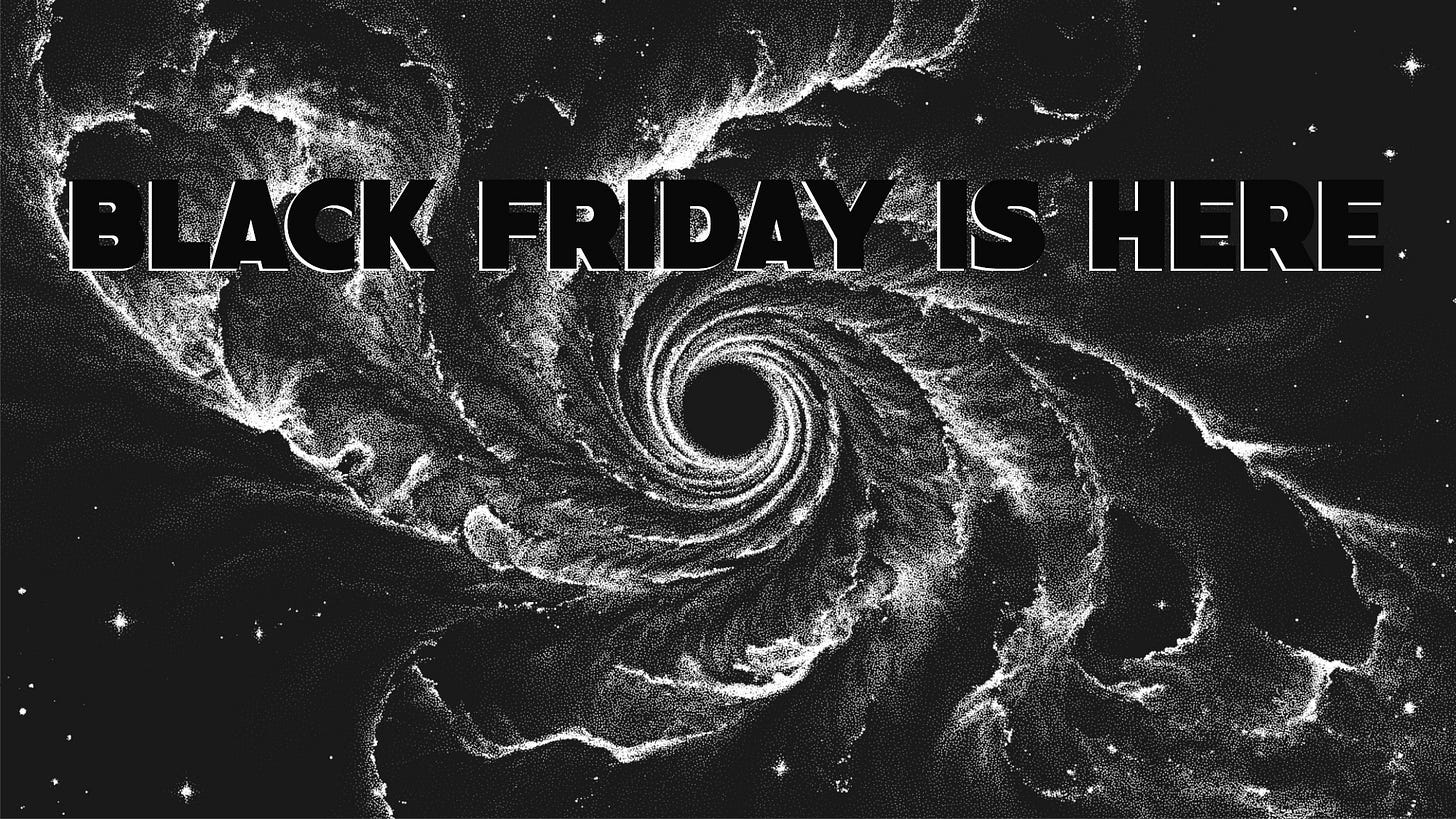
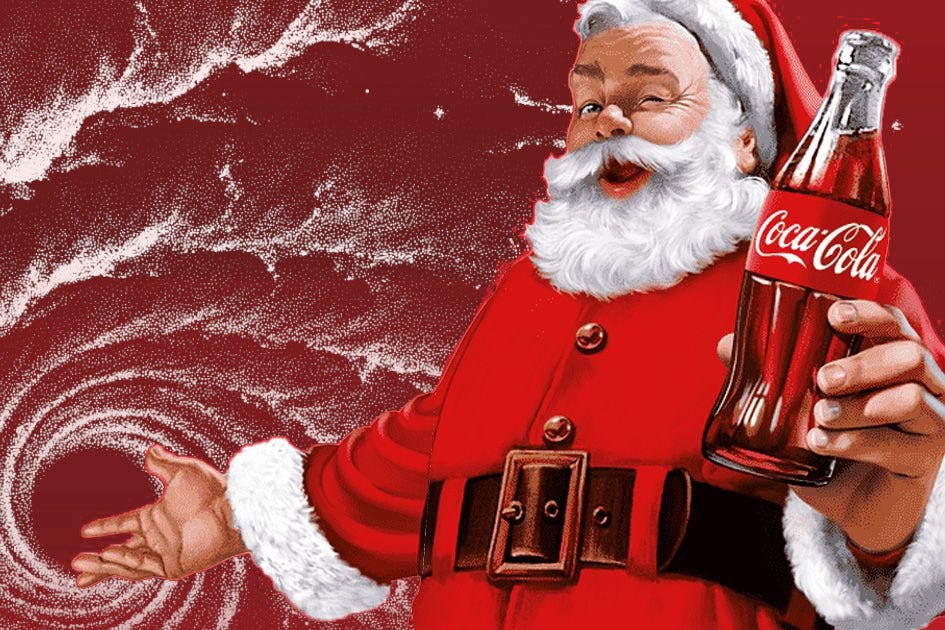


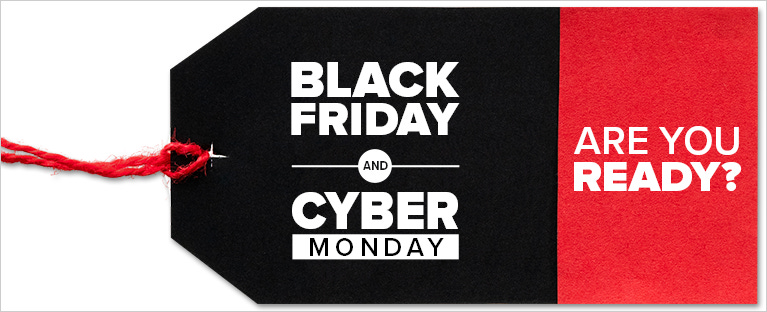
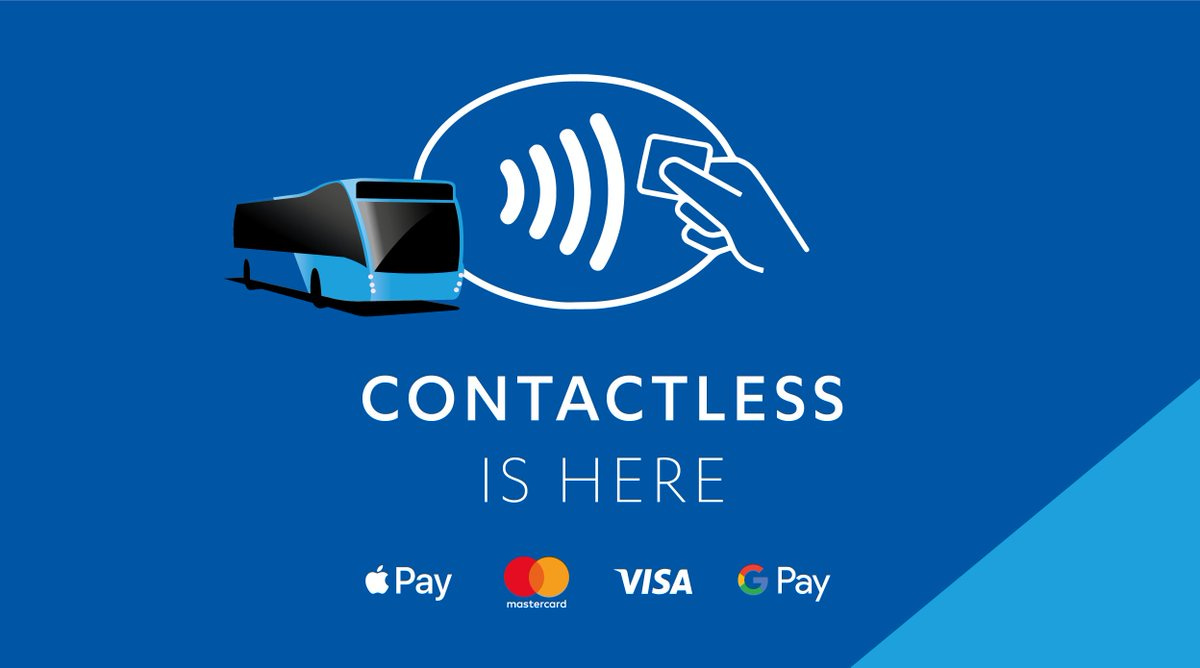

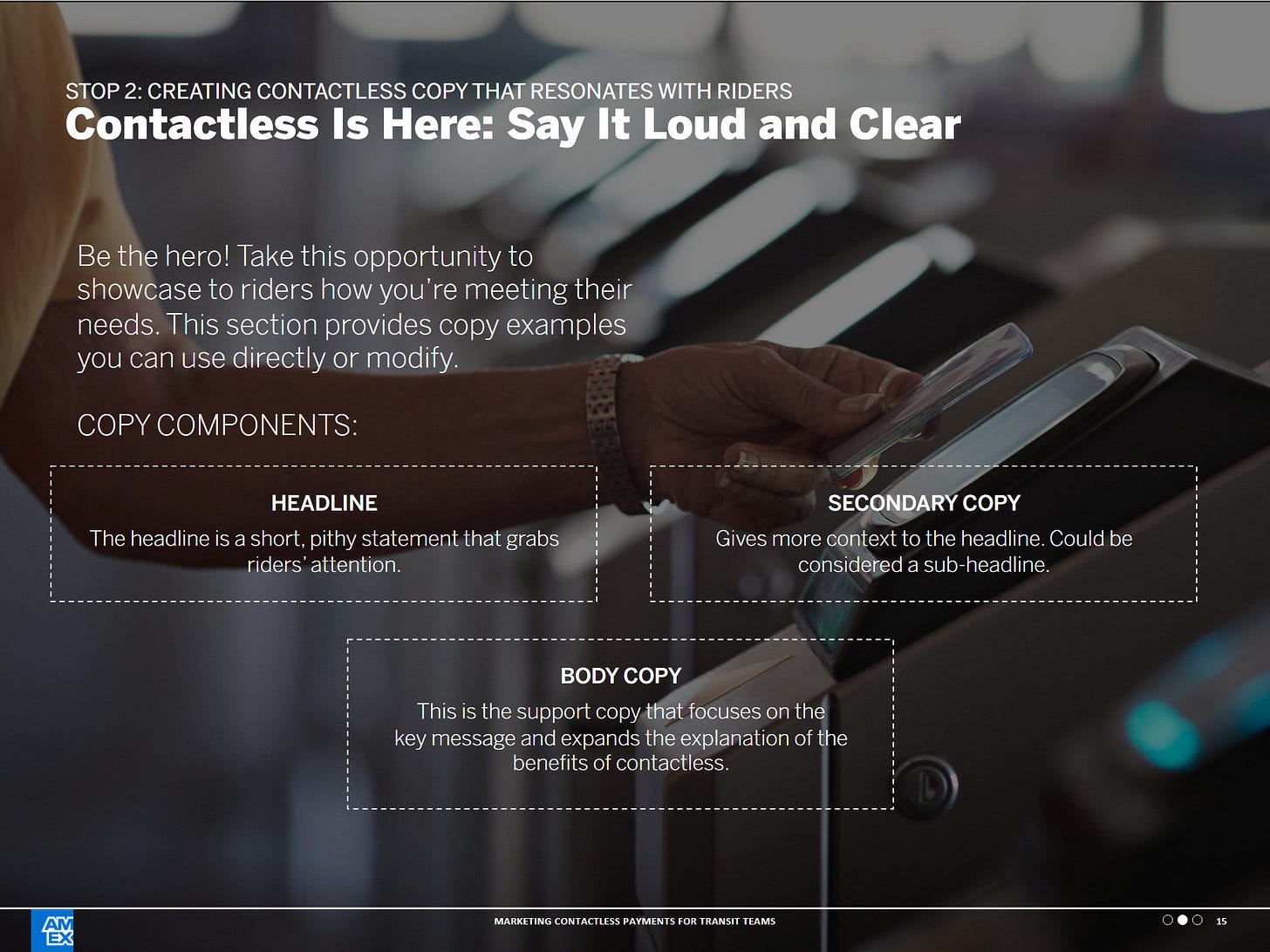

"Not a Bargain Friday" - Pay 10% off the price they doubled last month.
Black Friday? ...You mean Buy Nothing Day?
https://en.wikipedia.org/wiki/Buy_Nothing_Day